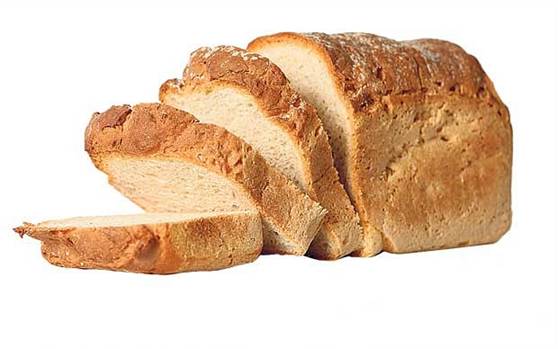Health sells
‘A slice of bread can
contain more salt than a package, of crisps.’
Health claims also affect what we put in our trolleys. In
2006, the EU ruled that all food health claims should be independently checked
by the European Food Safety Authority. The science behind over 4,000 health
claims has since been assessed and, incredibly, around 80% of them couldn’t be
scientifically proven. This includes claims about green tea maintaining normal
blood pressure, royal jelly helping to boost your immune system, glucosamine
contributing to joint health, and taurine (in energy drinks) improving mental
performance. Once the list is completely finalised – which is expected to be
later this year – manufacturers will have six months to fall into line.

Do we care? Absolutely, says Zoe, because savvy marketing
companies use these claims to make sales. ‘If a certain product is flagged up
as being great for digestive health, for example, we might overlook the fact
it’s high in sugar and overpriced,’ she points out. ‘You only have to look at
cereal boxes to know this is the case.’ Indeed, wholegrain is now the most sought-after
health claim on packets, according to the 2010 Healthy Eating Consumer Trend
Report by research firm Technomic – no doubt thanks to growing evidence linking
a diet rich in them with reduced risk of cancer and heart disease. And health
clearly sells; Mintel reports the market for wholegrain products increased
nearly 20-ford between 2000 and 2010.
Learn the lingo
But it’s not just the health hype we’re suckers for. Words
such as ‘pure’, ‘rustic’ and ‘farmhouse’ all sway us to buy foods we think are
more wholesome than they are; something the new regulations will be addressing.
‘If a food was truly pure, rustic and from a farmhouse then it wouldn’t come
packaged with a label,’ points out Zoe. ‘Marketing companies know the buttons
to press to get us to part with our cash. It’s as simple as that.’
Victoria agrees. ‘Just because something is ‘100% natural’
doesn’t mean it isn’t bursting with fat, sugar or salt – all three are natural.
And something that’s flagged up as low in fat might still be high in calories –
sometimes higher because the fat is often replaced with sugar.’
While it’s likely to be some time before we see any real
changes, what’s clear is that we all need to take responsibility for our
choices. ‘It’s curious that there’s so much apparent confusion about food
labelling when there’s such a massive amount of dietary information available,’
notes Hamish. ‘Over the years, the Government has spent millions promoting
healthier foods, more balanced diets, and more active lifestyles, so it’s hard to
believe the average person doesn’t have a pretty good idea of what they should
and shouldn’t be eating.’
We can all read food labels. But, admit it, sometimes we
choose to ignore the facts. Kidding ourselves that if our chocolate’s organic,
we can eat twice as much is something we all do. Maybe it’s not just the
manufacturers who need to be more honest.
|
5 Ways
to shot smart
Phillip
Adcock, author of Supermarket Shoppology, has these tips for making
your trolley dash more healthy
1. Eat first. Never shop when you’re feeling hungry, thirsty
or tired – your decisions will be less rational and you’ll buy foods higher
in fat and calories.
2. Write a list. It’ll help to focus your brain and you’ll be
less tempted by all the tantalising special offers.
3. Focus. Challenge yourself to shave 50 calories off every
purchase. That way you’ll focus on one aspect and won’t be swayed by words
like reduced-fat, which are usually arbitrary anyway.
4. Shop back to front. If you normally start at the fruit and
veg, say, head off to the other side of the supermarket. It’ll take your
brain off autopilot, and help you make healthier, more conscious decisions.
5. Take your time. The average shopper considers a product for
just four seconds before dropping it in their trolley. Shop online and you’ll
have more time to browse labels and be less influenced by in-store
promotions.
|